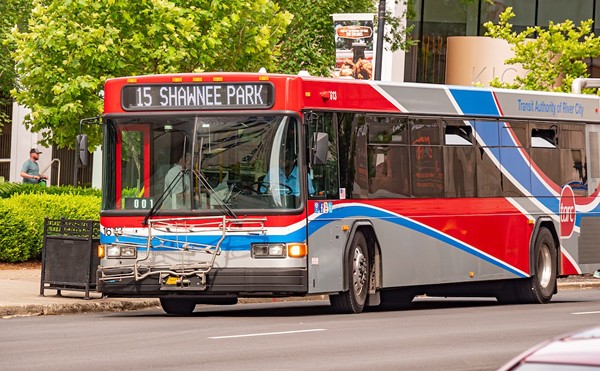The chief conclusion that can be drawn from the SurveyUSA mayoral poll is that the leading candidate in both primaries is you — the undecided voter. Everything else is media punditry and campaign spin.
Hoping to make good with those who are still uncertain, Democratic mayoral candidate and Metro Councilman Jim King, D-10, will begin airing his first television commercial this week. The $135,000 advertisement highlights the city lawmaker’s biography and impressive legislative record, but it raises eyebrows among political observers because it hints at the high-profile controversies he’s dealt with.
“Have I made mistakes? Yes,” King says. “But I’ve worked hard every day to do the right thing for my family, my business and our city.”
The public concession doesn’t go into detail, but the campaign hopes it gives King — in third place among Democrats, according to the poll commissioned by WHAS-11 and The Courier-Journal — a second chance among the 32 percent of Democratic voters still on the fence. By bringing up those problems in a television campaign ad, however, King may have opened up old wounds.
Whatever the result, it’s a risk that the campaign believes it had to take considering how easily rumors about the president and CEO of King Southern Bank can be attached to his apparent Velcro candidacy.
•••
After stalling for nearly two years, the Metro Council finally got through a stubborn and contentious debate when it unanimously passed an ordinance that tightens the city’s code of ethics.
The revised city bill now requires electronic posting of reports, changes ethics rules for Metro officials and expands the reach of the Ethics Commission, but that isn’t what caught the attention of many LGBT advocates.
By expanding the number of people covered under the new ethics law, Metro government’s definition of “family member” now includes same-sex couples thanks to an amendment added by Councilman Brent Ackerson, D-26, who attached the historic language to the ordinance while it was still in committee.
The opening for this change is due in large part to the transparency agenda being pushed by council Republicans, who have sought to hold a wider range of Metro employees accountable under the revised law. By expanding the definition of households and family members, the legislation now includes LGBT employees, meaning the ethics legislation applies to even more people.
The city now recognizes a committed relationship as any sharing of income and expenses by couples involved in heterosexual and/or homosexual relationships.
•••
A public information meeting Monday evening to discuss a proposal to change the name of 34th Street to Louis Coleman Way turned ugly as many observers expected. People on both sides of the debate got into shouting matches and heated arguments, and at one point a handful of rowdy attendees had to be restrained by fellow audience members.
The resolution to change the street stretching from Parker Avenue to Duvalle Drive is sponsored by west Louisville Councilwomen Judy Green, D-1, and Cheri Bryant-Hamilton, D-5, to honor the late civil rights activist who headed the Justice Resource Center.
The arguments for and against are eerily similar to the ugly debate that ensued in 2006 when Coleman led an attempt to rename 22nd Street after Dr. Martin Luther King Jr. Residents of the predominately white Portland neighborhood strongly opposed that change.
The bitter rematch has many of Coleman’s former aides and supporters up against those same residents, who say the renaming could confuse residents and that the estimated $3,200 to replace street signs would be wasteful.
“I myself do not want to have to call all my bill people and change my address. Nothing against the man,” says Peggy Johnson, who lives on 34th Street in Portland. “Why is this money not going to the parks to help take care of children? I’m sorry, there are just better things to put the money towards.”
However, many in attendance said it’s time the city honored the iconic civil rights leader who fought for equality for all people.
“It’s a sad time when we have to argue about naming a street after a man who did so much not just for black people, but Hispanics and whites,” says Mattie Jones, a veteran civil rights activist who marched with Coleman. “What’s wrong with naming 34th Street after a man that’s done so much for the city? When will we end all of this — and I’m going to say — racism?”
The city’s planning agency will hold an official public hearing on the proposal at a later date.





